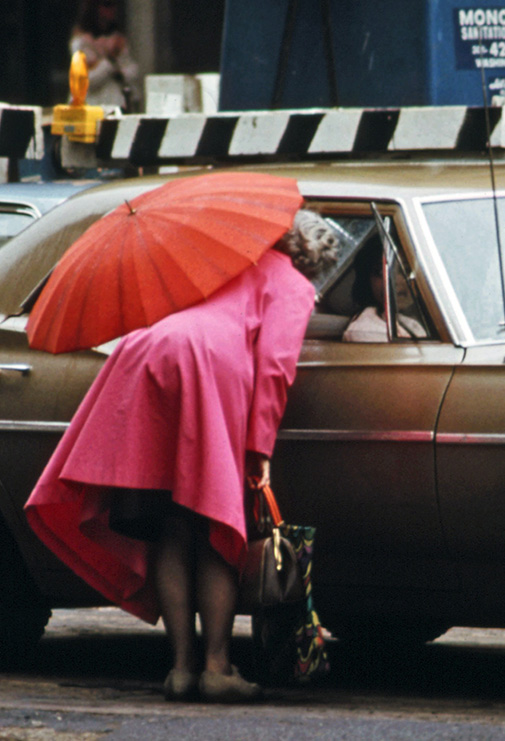- Vol. 10
- Chapter 09

New York
Ongoing roadworks on 5th Avenue—no surprise there. Whether it was March or September, winter or summer, the cityscape was always changing, and so was she. Just like the new cement being poured daily that, incidentally, looked exactly like the old cement, hers was also a gradual, barely perceptible, kind of change. Everyday she became more aware of how her hair was growing out for the first time after years of relentless cutting, and how her spring-freckles were already showing even though she couldn’t remember the last time she’d been in the sun. Or the last time it hadn’t rained, for that matter.
As she walked the street under a drizzle, she mentally patted herself on the shoulder for—somewhat too responsibly, she thought—grabbing her red umbrella in a spasm before walking out. It seemed only fair, this sporadical scolding herself for acting in ways she thought symbolized her having become a lady—the kind who keeps multiple cans of beans and pineapple in her cupboard just in case… and sometimes she really wondered at her storing of supplies in preparation for God-knows-what, at how she’d gone from being the girl who would occasionally shun wearing panties for a night out to the woman who would come home with dozens of identical groceries. And it would sometimes startle her, when she opened her cupboard, seeing the rows of cans peeking at her from the shelf, reflecting that one transparent fact, that she was old now. Oh, but what of it? Trees grew old too. It was only natural. But why did the natural feel so repulsive at times, so.. unnatural?
The cans seemed more ironic by the day. It was a glint, nothing more. A way in which the light of the kitchen would hit the metallic circumference at the top and make it gleam derisively, like a condescending wink.
But that afternoon, as she crossed the street with her ritual zig-zagging between taxicabs and motorcycles—moccasins pounding melodically on the
New York
asphalt, her raincoat waving wildly at her hips—she suddenly had the feeling that everything was still possible. It wasn’t too late and, if she was quick, she could make it in time to see a movie. But no later than a 5pm-projection, so she could go to bed early. This wasn’t her hood though—(“Hood”! Maybe she wasn’t so old after all!). She knocked on the window of a car to ask for directions and, in a manner that was reminiscent of her wild-girl days, leaned over, smiling at the stranger in the passenger seat. As she did, the sound of a nearby drill became louder and, with that, she was suddenly reminded that the city was lovely both in spite and because of its need for maintenance, of its history, of its beautiful, uncomplicated aging.
